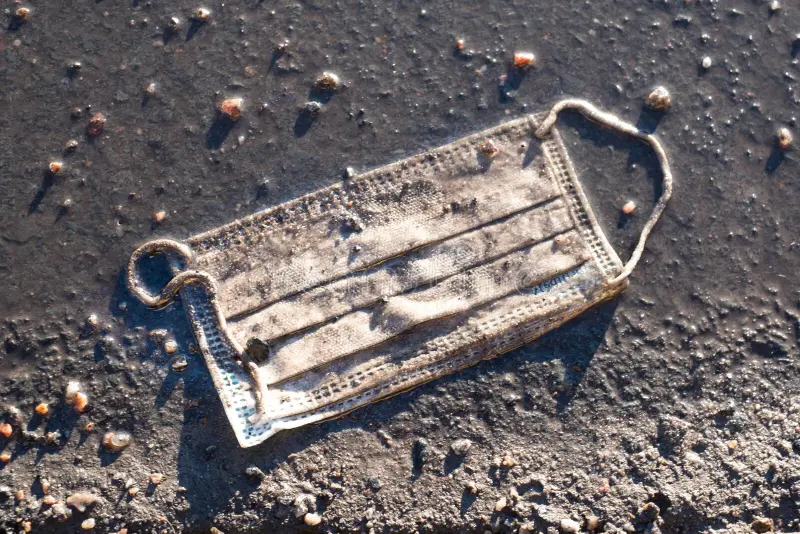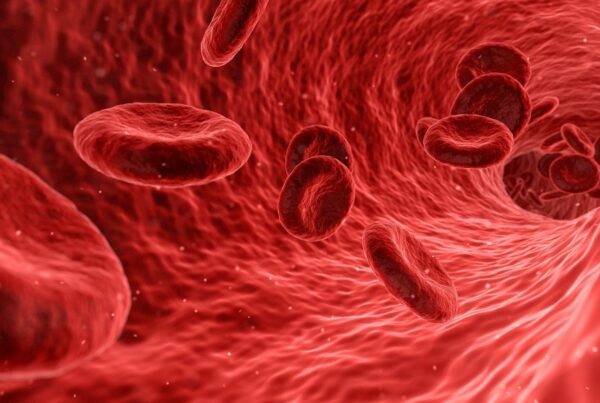Masks, Medicine, and “Following the Science”
When public health policy does not align with science
As of April 3 of this year Oregon dropped the mandate that required masking in medical clinics, hospitals, and other public health facilities. It’s about time. Long overdue, in fact.
Masking in general has been a contentious issue over the past 3 years, with strong opinions held on both sides. On the one hand, it seems to make intuitive sense that a mask would stop at least some contagion of a disease that is spread via the particles that become airborne by coughing, sneezing, and even talking.
On the other hand, we all understand that the phrase “follow your intuition” is not the same as “follow the science.”
When sound scientific research comes to conclusions that contradict our intuition, we do not throw out the science in favor of intuition. If we did that, both Einstein’s theory of relativity and the entire field of quantum physics would be kicked to the curb. Both are radically counterintuitive ideas that are also accurate out to several decimal points of precision.
When it comes to public health, published studies are the science we evaluate to draw conclusions. But of course not all studies are created equal. I won’t go into all the different types of studies that can be conducted, but a few important types are:
“What is important to note is that the studies the CDC has conducted and studies they review are all observational studies, the weakest kind of study.”
Observational studies – These are among the least valuable. They observe a population of people over time and draw conclusions about what happens or not (e.g. SARS-CoV-2 infection) based upon a behavior they exhibited or not (e.g. wearing a mask). These studies are very weak (meaning, their conclusions are not very trustworthy) because there are factors that cannot be accounted for. For instance, perhaps people who wear masks are more likely to supplement with vitamin D, which also lowers infection risk.
Randomized controlled trials – These are what most think of as the epitome of scientific evidence. In a controlled trial one group does the intervention (e.g. wear a mask) while another does not. Often these trials are “placebo controlled,” where the control group isn’t given the real intervention, as in a drug trial where some get sugar pills. However, in a study on masking there isn’t a way to do a placebo group, so the best studies are simply controlled (i.e. one group doesn’t do the intervention). “Randomized” means that who was selected to wear a mask and who was selected not to was a random decision, not based on any characteristics of the person in the study.
The Center for Disease Control (CDC) has often published studies or position papers, and spokespeople have stated at press conferences, that “science” shows masking to be an effective intervention for reducing spread of SARS-CoV-2. What is important to note is that the studies the CDC has conducted and studies they review are all observational studies, the weakest kind of study. Why would they not cite controlled trials on masking? Because every single one that has been conducted has found masks to be ineffective at reducing the risk of acquiring a respiratory illness.
Every one of them.
“The pooled results of RCTs [randomized controlled trials] did not show a clear reduction in respiratory viral infection with the use of medical/surgical masks.”
More recently an explosive new study by the Cochrane Collaborative was published. I’ll tell you what it found, but first I’ll tell you about the Cochrane Collaborative (CC).
The CC is a network of physicians, researchers, and public health professionals around the world. Subgroups within the CC network will periodically pick a topic – like the evidence that anti-depressant medications are significantly effective at reducing depression symptoms, for example – and they review all the high-quality published studies on that topic to see what the overall conclusion is. The CC is the most authoritative voice in the world when it comes to issuing unbiased reviews of the scientific literature on the various topics they review.
In January of this year the CC published a comprehensive review of all the intervention and controlled trials that looked at the effectiveness of wearing a mask at reducing the risk of acquiring a respiratory infection. This review covered 78 randomized and controlled studies dating all the way back to 2009 and extending through the Covid-19 era, so they were looking at masks to prevent Covid-19, but also looking at masks to prevent influenza and other respiratory infections. They looked at masking both at the community level, and masking by health care workers in hospitals. Here is a quote from their conclusion:
“The pooled results of RCTs [randomized controlled trials] did not show a clear reduction in respiratory viral infection with the use of medical/surgical masks. There were no clear differences between the use of medical/surgical masks compared with N95/P2 respirators in healthcare workers when used in routine care to reduce respiratory viral infection.”
The authors note that the studies they reviewed were not without their limitations. What is clear, though, is that the evidence was not in any way overwhelmingly in favor of masks being protective. The available evidence strongly suggests that they are not protective, with the caveat that maybe more studies with better study design would find some benefit. That’s not exactly a conclusion that justifies any zealous campaign for universal masking, whether in a health care setting of in a corner market.
“Mask-wearing is not benign to our health, and so should only be done if the evidence that it is protective is strong. Now (as before Covid-19) we know that it is not.”
The publication of that review has taught us a few very important things:
- The masking that has been done for the past 3 years is not supported by the preponderance of scientific evidence. More bluntly, there is no clear scientific evidence that it has done anything to protect anyone or to reduce the amount of Covid-19 either in health care settings or in the community.
- The studies on masking conducted prior to Covid-19 were available to the CDC. Clearly the CDC did not review the evidence on the efficacy of masking before making it a public health recommendation. [Actually it did, but it contradicted it’s own conclusion on masking once Covid-19 cases were first starting to rise in March 2020.]
In a recent interview, Dr. Anthony Fauci was asked about the Cochrane study and its definitive finding. Fauci replied that, well, it only applied to community masking (something Fauci himself has strongly advocated for 3 years), but other studies show masking to be effective for specific individuals. He didn’t cite a single study in support of that statement, nor do I know of a single study that supports it.
It is certainly anyone’s right to continue to wear a mask. Advocating and even urging that others do so, however, is not based on the science regarding the impact of masking to prevent respiratory illnesses.
As a footnote to this, a second peer-reviewed study came out after the Cochrane review just summarized. This was not about the efficacy of mask wearing for disease prevention, but about the detrimental effects of mask wearing on the health of the person wearing it. Here is an extended quote from that paper, with a few highlights that I’ve added:
“Masks interfered with O2-uptake and CO2-release and compromised respiratory compensation. Though evaluated wearing durations are shorter than daily/prolonged use, outcomes independently validate mask-induced exhaustion-syndrome (MIES) and down-stream physio-metabolic disfunctions. MIES can have long-term clinical consequences, especially for vulnerable groups. So far, several mask related symptoms may have been misinterpreted as long COVID-19 symptoms. In any case, the possible MIES contrasts with the WHO definition of health.”
Mask-wearing is not benign to our health, and so should only be done if the evidence that it is protective is strong. Now (as before Covid-19) we know that it is not. Scientific conclusions do not always align with our intuitions. When this happens it challenges us to nevertheless acknowledge that “Science is Real,” as the ubiquitous window posters proclaim.
“Mask-wearing should only be advocated if the evidence that it is protective is strong. Now (as before Covid-19) we know that it is not. Scientific conclusions do not always align with our intuitions.”
In July of 2021, frustrated that the CDC was not conducting studies to determine if mask wearing by school children could be harmful, a group of parents took matters into their own hands. They sent six masks that had been worn by school-aged children for 5 to 8 hours on a single day to a lab.
Lab analysis found no viruses on the masks, but they found several potentially quite dangerous bacteria, including:
- Streptococcus pneumoniae (pneumonia)
- Mycobacterium tuberculosis (tuberculosis)
- Neisseria meningitidis (meningitis, sepsis)
- Acanthamoeba polyphaga (keratitis and granulomatous amebic encephalitis)
- Acinetobacter baumanni (pneumonia, bloodstream infections, meningitis, UTIs— resistant to antibiotics)
- Escherichia coli (food poisoning)
- Borrelia burgdorferi (causes Lyme disease)
- Corynebacterium diphtheriae (diphtheria)
- Legionella pneumophila (Legionnaires’ disease)
- Staphylococcus pyogenes serotype M3 (severe infections—high morbidity rates)
- Staphylococcus aureus (meningitis, sepsis)
These are bacteria found on the masks of just six children after just a single day of mask wearing! Of course these findings were criticized for not going through peer review, but when the public health institutions fail to carry out basic studies needed to establish mask safety, parents stepped in to do it on their own.
Mask-wearing should only be advocated if the evidence that it is protective is strong. Now (as before Covid-19) we know that it is not. Scientific conclusions do not always align with our intuitions. When this happens it challenges us to nevertheless acknowledge that “Science is Real,” as the ubiquitous window posters proclaim.
I’m glad Oregon dropped the mask mandate for health care facilities and am extremely frustrated that there is now talk of mask mandates returning. There is no new science since the Cochrane publication showing that masking is protective, which is why none gets cited by public officials.
Science is not monolithic; science without debate and informed criticism is not science at all. Most importantly of all, no one is protected by stifling debate. It is dangerous to put more faith in the proclamations of public health officials than in the actual studies that have been conducted and published.
I believe that virtually every public health policy and medical protocol surrounding Covid-19, if subjected to a comprehensive scientific evaluation such as the CC did with masking, would be revealed as questionable at best, and outright contradicted by the preponderance of scientific evidence at worst. Whether those policies ultimately led to lives saved or lives lost, only time will tell.
If wearing a mask makes anyone feel safer, then by all means wear a mask. I believe we are all best served, though, by health care advice that is grounded in scientific evidence. Wearing masks to prevent respiratory infections does not meet that basic standard.
I’m glad Oregon has dropped the mask mandate for health care facilities. “Follow the science,” in the age of Covid-19, has become an empty slogan in many ways.
I believe that virtually every public health policy and medical protocol surrounding Covid-19, if subjected to a comprehensive scientific evaluation such as the CC did with masking, would be revealed as questionable at best, and outright contradicted by the preponderance of scientific evidence at worst. Whether those policies ultimately led to lives saved or lives lost, only time will tell.
For now, thank goodness the mask mandate for health care facilities is finally following the science.




